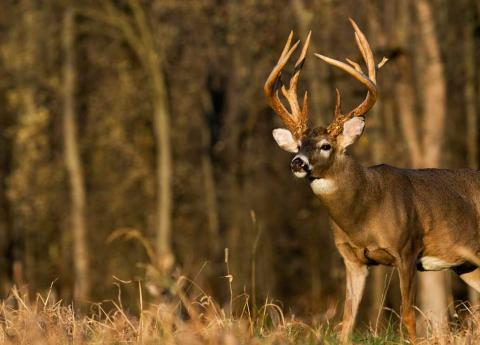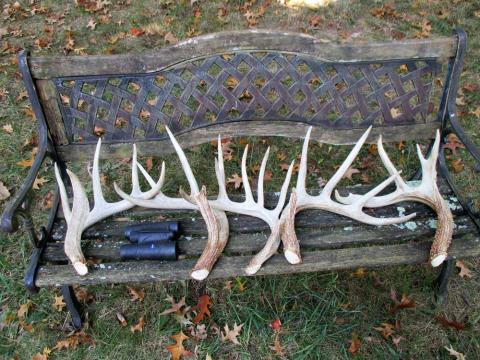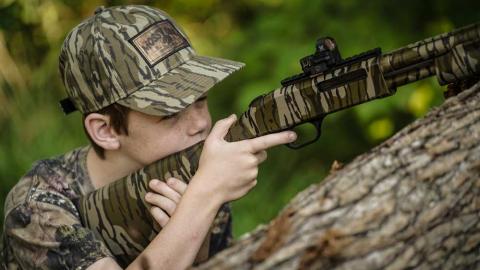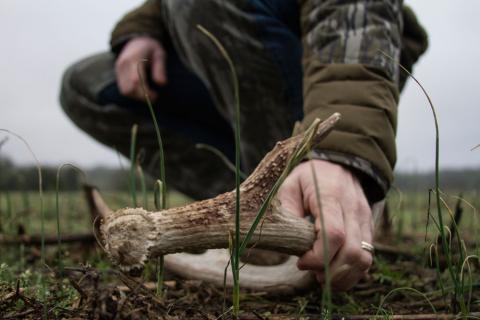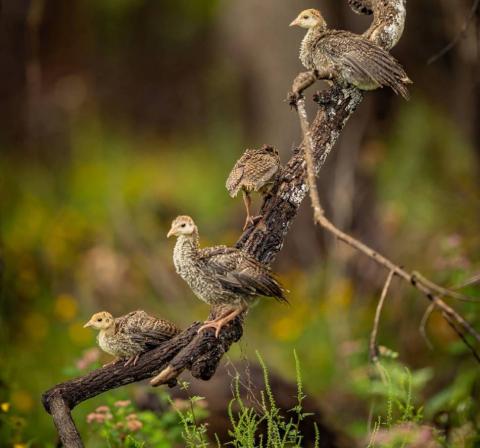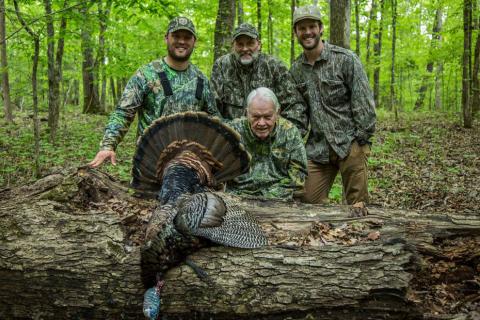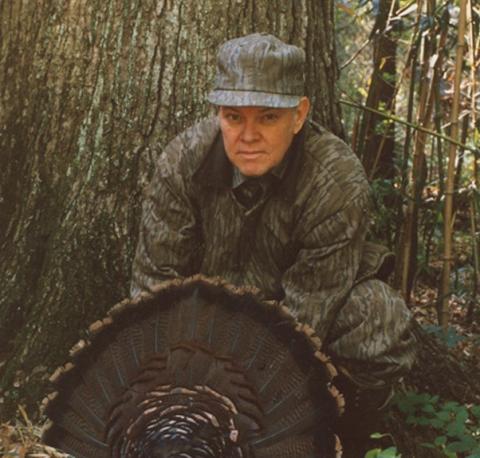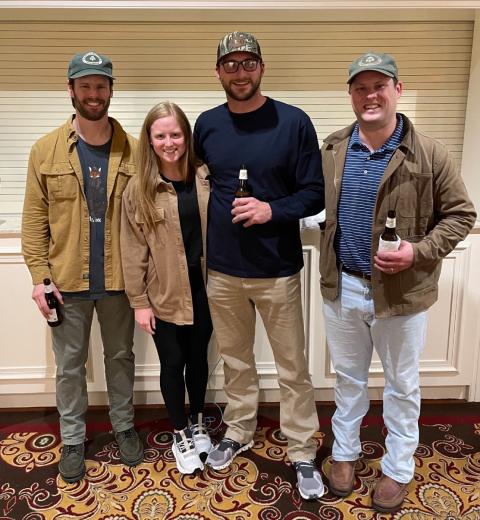Brian McCombie
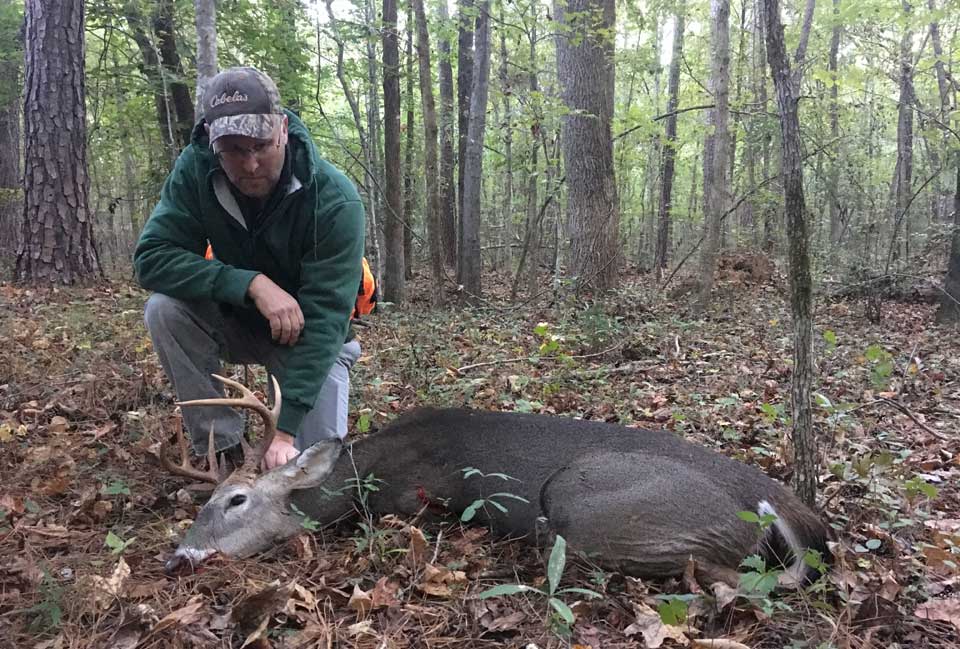
Do you want to introduce new people to hunting? Offer them a meal…of tasty venison!
That’s one recipe for success that Hank Forester and Charles Evans have discovered in Athens, Georgia. A couple years ago, the two were brainstorming ways to get more people interested in hunting. They knew about the “Field to Fork” program, a cooperate effort originally launched in Kentucky by the Kentucky Department of Fish and Wildlife Resources and the Quality Deer Management Association (QDMA). It was conceived as a series of hunting, conservation and game cooking workshops aimed at adults. Once they’d attended the workshops, these adults could then participate in a hunt.
Forester and Evans took the original Field to Fork idea and reversed it. As in, they started with the “fork!”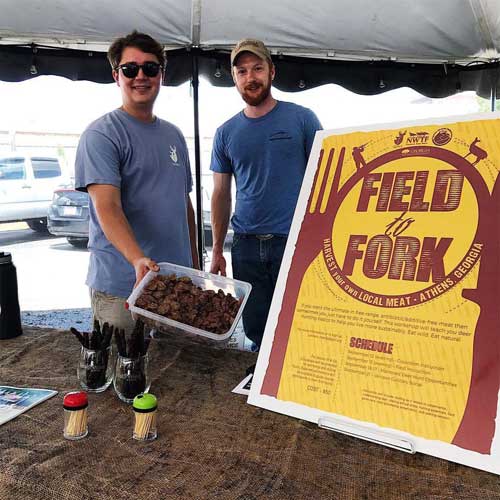 The two decided to prepare venison in various ways - meatballs, jerky, backstrap - and set up a booth at the local farmer’s market held Saturday mornings in Athens, Georgia. Anyone who wanted to could sample the venison for free. And once these people realized the venison was not only delicious but all-natural, Forester and Evans explained how they could harvest their own natural protein: by hunting.
The two decided to prepare venison in various ways - meatballs, jerky, backstrap - and set up a booth at the local farmer’s market held Saturday mornings in Athens, Georgia. Anyone who wanted to could sample the venison for free. And once these people realized the venison was not only delicious but all-natural, Forester and Evans explained how they could harvest their own natural protein: by hunting.
“We found that a high percentage of the people coming to the farmer’s market were very concerned about where their food’s coming from and how it is produced,” said Forester. “They like organic foods and they prefer these foods to be produced locally. As we tell them, there’s nothing more organic or more local than free-ranging deer!”
Forester is QDMA’s Hunting Heritage Program Manager; Evans, a wildlife biologist, is the Georgia R-3 Coordinator for the Georgia Wildlife Federation, working to increase hunting participation and societal acceptance of hunting in that state. Both are also avid and life-long hunters.
Though the numbers are relatively small, this farmer’s market experiment has some pretty amazing results. They not only introduced dozens of people to healthful venison that first year, 2016, Evans and Forester also took 12 people through a hunter’s education workshop and then helped guide these people to deer hunt with crossbows. The 2017 roster of fledgling hunters filled up quickly, too, and that second hunt ended up with 10 deer taken by these new, adult hunters!
“And of those people, we’ve taken hunting, about 80-percent of them have continued to hunt,” Evans noted.
Evans and Forester’s efforts have been supported by the Georgia Wildlife Federation, the NWTF, Georgia Department of Natural Resources, and the QDMA.
Through the farmer’s market experience, Evans and Forester have learned many things about recruiting adults to hunting and barriers to that recruitment. For example, a lack of hunting land access is often cited as the biggest hurdle to recruiting new hunters. While lack of hunting land is certainly a factor, the adults Evans and Forester have talked to and worked with tell a different story.
“We find that many people coming to the farmer’s market want to participate in outdoor recreation,” said Forester. “And while many of them had considered hunting, most shied away from it because they saw the whole thing as intimidating, too daunting.”
A big concern of these people was what gear to use and how to use it. Some were worried about using a firearm. And most of them didn’t know anything about white-tailed deer and their habits, so they didn’t have a clue how to go about hunting the deer.
The workshops that Evans and Forester run answer such questions. For the hunt itself, the new hunters are paired up with experienced mentors, and crossbows were selected to get around any potential fears concerning firearms.
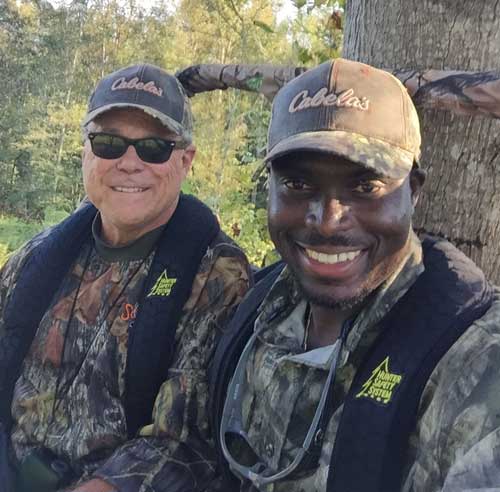 The program has been so well-received, Evans and Forester have even had a couple of vegetarians not only try the venison but go on deer hunts.
The program has been so well-received, Evans and Forester have even had a couple of vegetarians not only try the venison but go on deer hunts.
“This concern about where our food comes from is actually why many people turn to a vegetarian diet,” Forester explained. “These people don’t want foods that come from factory farming operations. But when we explain to them that venison is from a free-ranging animal, raised in the wild without the use of hormones or other chemicals? Many of these ‘vegetarians’ are very eager to try the meat.”
For 2018, Evans and Forester will continue to attend the Saturday morning Athens farmer’s market, bringing along plenty of prepared venison. They hope to expand the number of fall hunters they can work with, too.
In fact, this whole concept could very well be coming to a farmer’s market near you. Thanks to a grant from the National Shooting Sports Foundation, Evans and Forester are writing up the guidelines and how-to suggestions for operating such a program. The hope is that other hunting recruitment volunteers in other states and locales will then use those guidelines to replicate what Evans and Forester have done.
“QDMA hopes to have volunteers running similar programs in 20 states in the near future,” Forester noted. “We think this could go a long way to bringing new adult hunters into the hunting community, including many who, on the surface, you never would think of as hunters.”
















